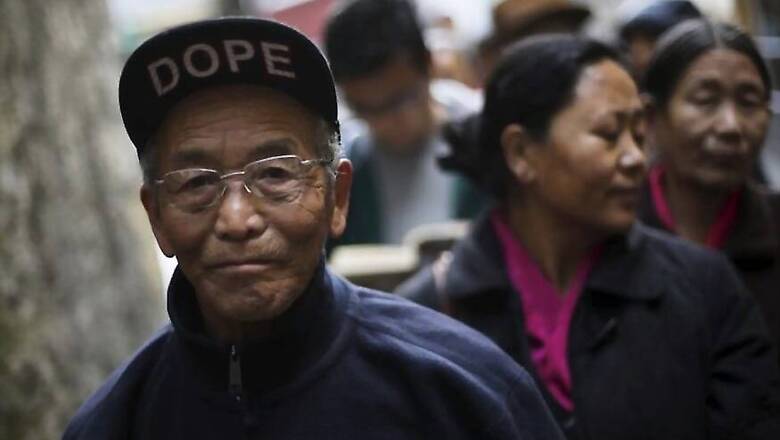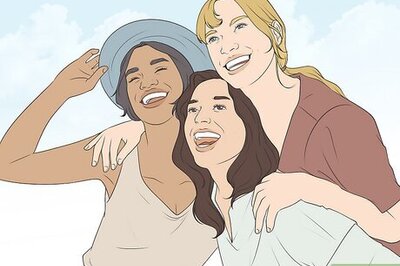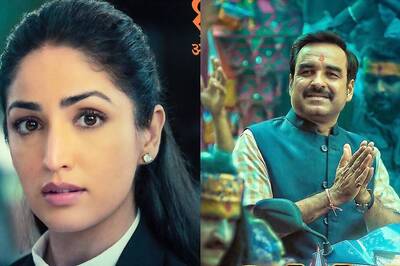
views
Unlike the general elections in India, elections in states do not see any drive for enrolment of ‘displaced people’ more commonly called “refugees” in the states. This is even more obvious in north-east states, as three states of Tripura, Meghalaya and Nagaland are going to polls on February 18 and 27 this month.
The Tibetan refugees in Dimapur, for instance, were informed by the Dimapur police to register online on or before March 31st without fail. This is to ensure that they do not engage themselves in voting or electoral process. Or for that matter involve in the political process or do not complicate the demography of the states that are sensitive to refugees or illegal immigrants in north-east India.
In 2013 , following Karnataka High Court order for granting Indian citizenship to children of Tibetan refugees born after 1950 and before 1987, the Election Commission of India directed all states to enroll children of Tibetan refugees born in India before this cut-off date in the electoral rolls. Reportedly though, Tibetans settled in India do not have the enthusiasm to do so. The Tibetan Settlement Office in Shillong has so far recorded zero names for application for Indian citizenship.
“It is an individual choice, there is no force to anyone nor anyone is encouraged either,” said Pema Dhondup, an official at the Tibetan Settlement Office in Shillong. “So far I have not received any application,” he said.
According to the Tibetan official, there are about 400 – 500 refugees in Shillong. “The refugee population in northeast India is scattered,” he said.
Unlike Tibetan refugees in other parts of India, for example in south India, where refugees lived in leased land allotted by the government it is not so in north-east India. “Here in north-east states Tibetans refugees live on rent. Refugees basically come to north-east for earning,” said Dhondup.
For acquiring Indian citizenship the person must surrender one’s Tibetan citizenship, as there is no policy for dual citizenship. “If a Tibetan applies for citizenship, he/she cannot retain his/ her identity as a Tibetan,” said Dhondup. The challenge for them is that they have to surrender their Tibetan citizenship, as Tibetan administration is strictly against a policy of dual citizenship. One of the reasons for the Tibetans’ dislike or un-eagerness for seeking citizenship is that to be a Tibetan is far closer to their hearts than be an Indian citizen. For those inclined to the socio-politics of Tibet and for activist and political leaders to surrender their Tibetan citizenship is a surrender of their dignity and identity.
Minister of state for Home Kiren Rijiju has also reportedly stated that “Tibetans are not seeking citizenship”.
It is a different story for the Chakmas, Hajongs and Bru/ Reang refugees in north-east India.
Chakmas and Hajongs in north-east India are recognised as scheduled tribes, who are mostly inhabitants of Tripura, but a large section of the population is ‘refugees’ in the north-east states. Over a lakh Chakmas and Hajongs were displaced from Chittagong Hill tracts in Bangladesh who fled in the early 60s (1963-64) when their lands and homes were submerged by Katai Dam built on Karnaphuli river in the hill tract. For more than 50 years or so, these new population of Chakmas and Hajong who fled from Bangladesh and came to India – in the north east region remain as ‘refugees’ in these states, mostly in Arunachal Pradesh, Mizoram and other parts.
Chakmas and Hajongs originally living in India are Indian citizens. This population even has representatives in state assemblies and local governance structures. Meanwhile, a large section of the population also lives in relief camps in southern Tripura due to tribal conflicts. These people number in thousands and take part in elections. The Election Commission sets up polling booths in relief camps.
Chakmas coming in from Bangladesh have been asking for citizenship rights in India: in places where they are settled in north-east India, such as Arunachal Pradesh, Mizoram and other north-eastern states.
The Central government’s attempt to accommodate the Chakmas and Hajongs into the Indian electoral process has met with stiff opposition, mostly from Arunachal and Mizoram. The BJP government’s recent move for implementing the Supreme Court Judgment (2015) to grant citizenships to Chakmas/ Hajong have not been taken lightly in states in north-east India.
Even as the SC ordered in 1996 “to protect lives and properties of Chakmas”, they remained stranded without state benefits let alone voting rights.
Kiren Rijiju has reportedly disapproved of the said citizenship to Chakmas. In September last year Rijiju stated that Chakmas cannot be given citizenship.
A rough estimate puts the number to a lakh of Chakma refugees living in Arunachal Pradesh and Mizoram; while many of them have become citizens, many are still left to attain the status. Thus a large population is left with no voting rights.
Atul Chakma Namsai, who lives in Arunachal Pradesh, said “The Centre and State must implement the Supreme Court (2015) order. We also want to enjoy full rights like other indigenous people.”
According to Namsai, the Chakmas, who live outside the geographical purview of Autonomous District councils or who are denied citizenship, are poor and live with no support system.
He said, “Those people face a lot of problems like unavailability of transport, medical support, education, road, electricity, etc.” They are living on the assistance provided by Central and State governments.
But Atul Chakma Namsai is not a pessimist, he believes “change is possible” and that their condition will improve. “Nothing is permanent, we will live with full rights and dignity one day,” he said.
The Chakmas are fighting for their rights as legal citizens, said Namsai. “We believe in peace and justice,” he added.
The Citizenship (amendment bill) 2016 was recently passed by the central government. Rijiju though says it is un-implementable. While Arunachal Pradesh’s Chief Minister Pema Khandu had expressed concern over the move grating full citizenship to Chakmas and Hajong, citing infringement on Tribal rights and demographic concerns which can be a potential case for unrest and conflict.
Pema Khandu had also written to Union Home Minister Rajnath Singh to ensure that special rights of the tribes of Arunachal Pradesh are safeguarded.
Apprehension over citizenship rights, voting rights and its subsequent repercussion have already been felt in various states in north-east India. Student Bodies in Arunachal Pradesh and Mizoram have protested and also consistently pressured and send representation to the Central government to review and rethink over granting citizenship to the Chakmas and Hajongs. Meanwhile these student bodies have also claimed that the Chakma population has increased manifold over the recent years, claiming that there is huge influx of ‘illegal’ migrants into the states (in north-east India). The influx though includes not only the Chakmas or Hajongs but people from countries like Bangladesh and Myanmar as well.




















Comments
0 comment